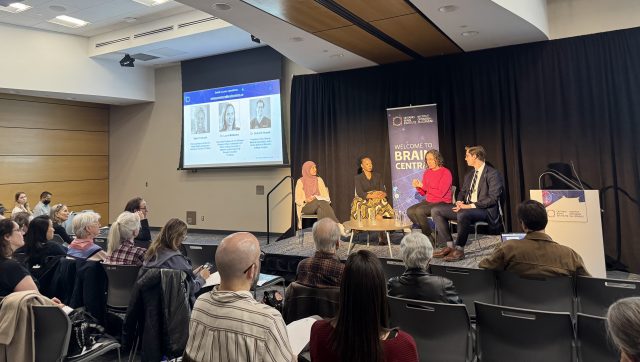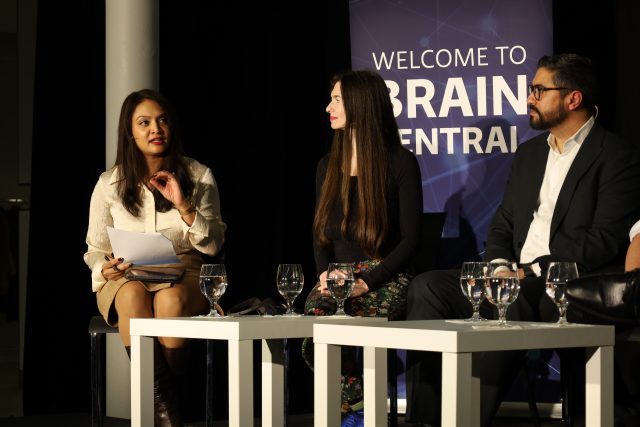“These are truly extraordinary times. We know that when people are experiencing something new and unfamiliar to them, it can cause many people to also experience stress and anxiety among other mental health challenges,” remarked the Hon. Michael Tibollo, Associate minister of Mental Health and Addictions. “These stressors become a lot for a person to manage on their own – even with the support of their family and friends.”
As Tibollo rightly pointed out, the COVID-19 pandemic has increased the concerns around brain health, making it more important than ever for mental health and wellness to be discussed more broadly. This offers people an opportunity to speak and share without fear of stigma and make use of tools and supports readily available to make informed decisions about their overall health in partnership with health care providers.
Here are four misconceptions experts would like to clarify, for you to better understand depression.
- Feeling sad vs being depressed: How to understand the difference?
It can be challenging to decipher whether the emotions you are feeling are a normal reaction to set of circumstances such as the loss of a family member or friend; or stress over the challenges of the pandemic, or whether they reflect a more significant health issue – such as clinical depression or another mood disorder.
Maryanne Lewis, a mathematics graduate and member of CAN-BIND’s (OBI’s depression research program) Community Advisory Committee, who was diagnosed with depression at the age of 16, perhaps puts it most succinctly, “The difference is really how long you feel it.” Lewis goes on to explain, “If something bad happens, you might feel sad for a couple of days. Depression sadness is a sadness that overwhelms you and you end up feeling it for a couple of weeks, then a couple of months; it’s the type of sadness that doesn’t go away when watching a comedy show or something that would usually make you happy. It’s all encompassing.”
Dr. Sidney Kennedy, the Principal Investigator of CAN-BIND and a scientist at St. Michael’s hospital agrees with Maryanne’s assertion, “feeling sad is a healthy and normal reaction, and many people with depression can recognize the inherent difference”.
- There is no “one-size fits all” treatment for depression.
Depression is a serious illness that doesn’t discriminate by gender, race or income – nor does it impact everyone the same way.
Dr. Kennedy explained that there is no single depression. There are people who experience major depressive disorder – recurrent episodes of only depression, and others who receive a diagnosis of bi-polar disorder who have episodes of depression.
“There are many different factors, like family history and genetic clues, life experiences – including childhood trauma,” Dr. Kennedy explains. “Different people have different mechanisms and they arrive at a similar end point in terms of symptoms.”
Dr. Lena Quilty, a CAN-BIND investigator and a Senior Scientist at the Centre for Addiction and Mental Health notes that research is important in determining what works best for each individual, “research so far shows that medication and psychotherapy are approximately equal in their effectiveness, and the combination of both is even more effective.”
Maryanne points out that for herself, and many others living with depression, have to go through trial and error to find out what works and what doesn’t, and often treatment plans need to evolve over time. For her, medication was required before she could make other lifestyle shifts, “Diet and exercise is very important, but if you can’t get out of bed it’s hard to go to the gym and eat vegetables.”
- Misconceptions around brain stimulation still exist.
Dr. Daniel Blumberger knows that a certain scene from the movie, One Flew Over the Cuckoo’s Nest still comes to mind for many people when they hear the term ECT, or Electroconvulsive Therapy. As a clinical scientist at CAMH focusing on understanding neurophysiology of treatment-resistant depression across the lifespan, Dr. Blumberger is intent on dispelling these inaccurate portrayals of what he calls a “life-saving treatment”.
“ECT is the most effective treatment for severe depression, even with all of the innovative,” says Dr. Blumberger, who is also a CAN-BIND investigator. “This is especially true in circumstances where people have thoughts about taking their own lives.”
Dr. Blumberger acknowledges that there are some concerns – particularly around memory impairment that has been known to occur, but that advances are being made to reduce these risks.
- It’s always a good time to seek advice from professionals or trusted friends.
If you’re having trouble distinguishing whether your mood or feelings are a normal reaction or something more serious, Dr. Quilty recommends monitoring yourself for a brief period of time.
“Monitor how you are feeling – daily if possible, but certainly weekly, and also monitor your substance use as those two often go hand-in-hand,” says Dr. Quilty. “Our moods fluctuate and that’s expected. That’s not something we should try to pathologize. If after a period of time you’re still feeling quite low it is reasonable at that point to be consulting with trusted others to explore options for support.”
“If you think about mental health as health, you wouldn’t tolerate a dislocated shoulder for two weeks without any kind of consultation.”
Major depression impacts 2 million Canadians annually, with 10 per cent of Canadians 15 years and older having experienced depression at some time in their lives.
To find a crisis line near you, please visit Distress and Crisis Ontario or find additional services at Ementalhealth.ca. If you are under the age of 18, please visit kidshelpphone.ca. If you are not in crisis but are concerned about your mental health talk to your health care provider to discuss your options.
You can also check out The Choice–D Patient And Family Guide To Depression Treatment to better understand what treatment options may be available and watch the OBI Public Talk with our panelists, moderated by André Picard.


